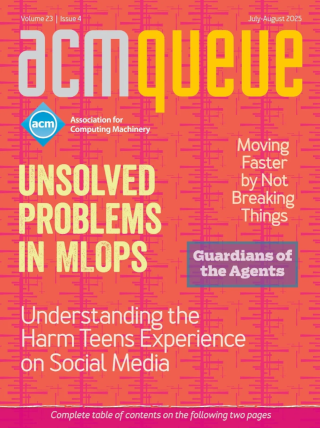
More Than Just Algorithms:
A discussion with Alfred Spector, Peter Norvig, Chris Wiggins, Jeannette Wing, Ben Fried, and Michael Tingley
Dramatic advances in the ability to gather, store, and process data have led to the rapid growth of data science and its mushrooming impact on nearly all aspects of the economy and society. Data science has also had a huge effect on academic disciplines with new research agendas, new degrees, and organizational entities. The authors of a new textbook, Data Science in Context: Foundations, Challenges, Opportunities, share their ideas about the impact of the field on nearly all aspects of the economy and society.
Sharpening Your Tools:
Updating bulk_extractor for the 2020s
This article presents our experience updating the high-performance Digital forensics tool BE (bulk_extractor) a decade after its initial release. Between 2018 and 2022, we updated the program from C++98 to C++17. We also performed a complete code refactoring and adopted a unit test framework. DF tools must be frequently updated to keep up with changes in the ways they are used. A description of updates to the bulk_extractor tool serves as an example of what can and should be done.
Catch-23: The New C Standard Sets the World on Fire
A new major revision of the C programming language standard is nearly upon us. C23 introduces pleasant conveniences, retains venerable traps for the unwary, and innovates a gratuitous catastrophe. A few steps forward, much sideways shuffling, and a drunken backward stumble into the fireplace come together in the official dance of C standardization, the Whiskey Tango Foxtrot.
The Parchment Path?:
Is there ever a time when learning is not of value - for its own sake?
The greater the risk, the greater the reward, and if you do succeed, it will be an achievement that you can look back on and smile wryly about. Postdocs never laugh because postdocs are post-laughter. However, there are some things to consider before plunking down your application fee and writing all those essays.
Opportunity Cost and Missed Chances in Optimizing Cybersecurity:
The loss of potential gain from other alternatives when one alternative is chosen
Opportunity cost should not be an afterthought when making security decisions. One way to ease into considering complex alternatives is to consider the null baseline of doing nothing instead of the choice at hand. Opportunity cost can feel abstract, elusive, and imprecise, but it can be understood by everyone, given the right introduction and framing. Using the approach presented here will make it natural and accessible.
Designing a Framework for Conversational Interfaces:
Combining the latest advances in machine learning with earlier approaches
Wherever possible, business logic should be described by code rather than training data. This keeps our system's behavior principled, predictable, and easy to change. Our approach to conversational interfaces allows them to be built much like any other application, using familiar tools, conventions, and processes, while still taking advantage of cutting-edge machine-learning techniques.



